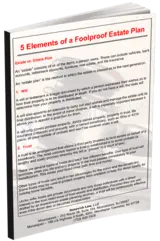Wills are serious and legally binding documents, but that does not mean they cannot be changed or even invalidated completely by the parties who write them. A variety of circumstances may necessitate the revocation of a will in Manalapan Township, from marriage to divorce to changes in business ownership or tax laws.
If you need to revoke your will so you can draft a new one that better suits your current circumstances and wishes, you should know that there are specific procedures you must follow to ensure the old document is formally invalidated and the new one is recognized as your legitimate will. A knowledgeable wills lawyer could guide you through this process as it pertains to your situation and help ensure all your legal bases are covered.
How Can a Will Be Revoked Under State Law?
According to New Jersey Revised States §3B:3-13, there are a few different ways in which a will can be legally cancelled or revoked. The most straightforward method is to physically shred, burn, or otherwise obliterate the outdated will, while also documenting the maker’s express desire to revoke that will and replace it with a new one.
A somewhat less aggressive alternative is for a will’s maker to work with an attorney to draft and sign a formal statement of revocation. In order for this statement to be valid, at least one person—and preferably two or more people—other than the maker must witness its signing, and the statement must explicitly affirm that all prior wills are cancelled upon the execution of this new document.
However, the most common method of revoking an outdated will in Manalapan Township is simply by including a provision in a newly drafted will that expressly cancels all prior wills and codicils signed by the maker. Regardless of the specific method used, it is crucial for outdated wills to be formally revoked. If two wills without dates of signings contradict each other, New Jersey intestacy laws require that neither will be treated as legally valid.
Reestablishing a Revoked Will
In addition to allowing for the revocation of a will, New Jersey state law also allows for Manalapan Township residents to restore a previously revoked will if they choose to. There are two methods by which a will’s maker could revive a cancelled will: by drafting and duly executing a codicil that expressly notes an intention to reestablish a revoked will, or through a separate re-execution process that an experienced lawyer could explain in further detail.
This statute also makes an important distinction between fully revoked wills and partially revoked wills. In the former case, the older will takes effects only if the newer will is legally revoked. The older will is then formally revived, and the filing party presents “clear and convincing evidence” that both actions were their express intent. Conversely, if only a portion of an older will is revoked, it is considered restored the moment the newer will is revoked, unless the filing party shows that this is not their intent.
Talk to a Manalapan Township Attorney for Help with Will Revocation
Just as there are numerous legal procedures that must be followed for a will to be valid in the first place, there are many steps you must take to ensure the revocation of that will if you wish to replace it with an updated document. Failing to abide by New Jersey state law when revoking or revising a will may lead to both documents being invalid in the eyes of a court, potentially putting you at serious risk of your wishes not being carried out.
Understanding the applicable rules and regulations in these circumstances could be much easier with help from professional legal counsel. Call today to speak with a seasoned lawyer about revocation of your will in Manalapan Township.

 (856) 439-6223
(856) 439-6223
